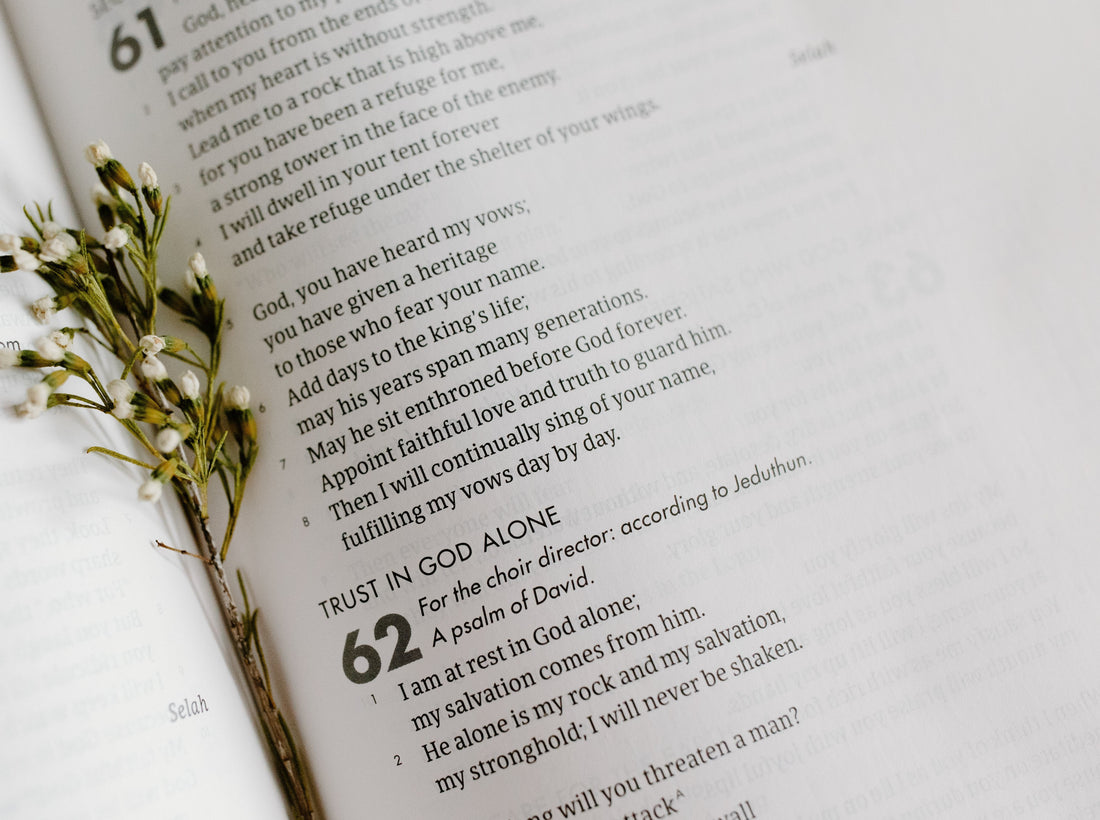
Can I Lose My Salvation? By Erin Quillen
Can I lose my salvation?
It’s a question you might find yourself asking in your own struggle with sin or seasons of doubt, or in navigating a relationship with a brother or sister in Christ who is trapped in patterns of sin or consumed with doubts of their own. While it’s a question we’re often afraid to ask, its answer magnifies the gracious work of God in our salvation (which is the process of being brought from death to life in Christ by grace through faith) and our sanctification (which is the process of being conformed into the image of Jesus through the work of the Holy Spirit). This question of whether or not we can lose our salvation finds its response with the doctrine of eternal security.
What is the doctrine of eternal security?
The doctrine of eternal security says that the salvation of those who are redeemed by grace through faith is secured in Christ and can’t be lost. Closely related to the doctrine of eternal security is that of the perseverance of the saints. The doctrine of the perseverance of the Saints is this– “They, whom God has accepted in his Beloved, effectually called, and sanctified by his Spirit, can neither totally nor finally fall from the state of grace, but shall certainly persevere therein to the end, and be eternally saved” (Westminster Confession 17.1). While the word persevering might give the impression that you’ll need to pull yourself up by your bootstraps and keep trying, it’s God who is doing the persevering, keeping us to the very end. “The assertion that believers persevere in faith and obedience despite everything is true, but the reason is that Jesus Christ through the Spirit persists in preserving them” (Packer).
From beginning to end, our salvation, sanctification, and security are not ours to earn or to try to keep, but are gifts of grace from our merciful Father that can’t be taken away from us. Romans 8, sometimes referred to as the pinnacle chapter of the epistle, outlines God’s action on our behalf in verses 28-30–
“For those whom He foreknew Je also predestined to be conformed to the image of His Son, in order that He might be the firstborn among many brothers. And those whom He predestined He also called, and those whom He called he also justified, and those whom He justified He also glorified” (Rom. 8:28-30, ESV).
God predestines, calls, justifies and glorifies us, which is to say it’s God who initiates and provides for our salvation from beginning to end. Just as our salvation “is the gift of God, not a result of works, so that no one may boast,” our sanctification is also initiated and carried out by Him (Eph. 2:8-9, ESV). Too often, I fall into believing the lie that while salvation is by grace through faith, transformation in my life will happen by my own work alone. This can quickly turn into worrying, striving, and chasing perfection, and robs me of the security that our salvation offers. In reality, I can trust that God will sustain me to the very end and will do the work of tending and cultivating good fruit in my heart and life. I can take encouragement in knowing that “He who began a good work in you will bring it to completion” (Phil. 1:6, ESV). We didn’t earn our salvation on our own merits, and we won’t be able to keep it on our own merits either. Our God is all-knowing, all-powerful, all-wise, unwavering, and unchanging. His character remains consistent, and all of His promises come true. Knowing that it’s this God who initiates this saving work on our behalf and promises to see us through to the end, we can trust that our salvation is secure.
What about those who seem to have fallen away?
Sometimes, those who seemingly fall away from the faith are those who never actually received salvation. The Parable of the Sower describes these instances with seeds planted on rocky ground and among thorns. In both scenarios, the word is seemingly accepted initially but is later proven never to have taken root (Matt. 13:18-22). Unfortunately, Scripture warns that there will be some who claim to be Christians and to have served in Christ’s name who never truly knew him (Matt. 7:21-23). While we can’t truly know the condition of others’ hearts, we can trust that God does and that His hand is never too short to save those who have not yet received salvation (Is. 59:1). The story of the thief on the cross serves as a powerful reminder that no one is too late or too far gone to experience God’s mercy, even to the very end of life (Lk. 23).
It’s also true that those who are truly saved and eternally secure might for a time wander into sin and rebellion, seemingly falling away. Though prone to wander and still fighting the power and presence of sin, those who are truly saved will ultimately be convicted and brought back to repentance, as He who began a good work in them carries it to completion (Phil. 1:6). It can be so painful to watch those we love and who we have seen experience true grace turn back to sin and destruction. As we lovingly confront one another’s sin, call each other to repentance, and pray for the Holy Spirit to convict and correct, we have to trust that God, who secures their salvation and continues their sanctification, will be faithful to preserve them. Though waiting may seem long, the story of the prodigal son reminds us that the Father stands ready to welcome His children back into restored relationship with great joy (Lk. 15:11-32).
What comfort does the doctrine of eternal security provide?
If you are in Christ, there is nothing that can separate you from God’s love and nothing that can snatch you from His hand (Rom. 8:38; Jn. 10:28-29). Your standing before God is not fluctuating based on what you do (or don’t do) for Him, but rests secure in what Christ has done on your behalf. When in your struggle with sin, doubt, or despair, you begin to question your ability to cling to God, remember His unmovable, unshakable grasp on you. It is Him who provided for your salvation, Him who continues to carry out your sanctification, and Him who keeps you securely. In response to the question “Can I lose my salvation?” we can respond with the certainty and security of these words of the old familiar hymn–
“When I fear my faith will fail, Christ will hold me fast;
When the tempter would prevail, He will hold me fast.
I could never keep my hold through life’s fearful path,
for my love is often cold. He must hold me fast.
He will hold me fast, He will hold me fast;
For my Savior loves me so, He will hold me fast” (Habershon).




